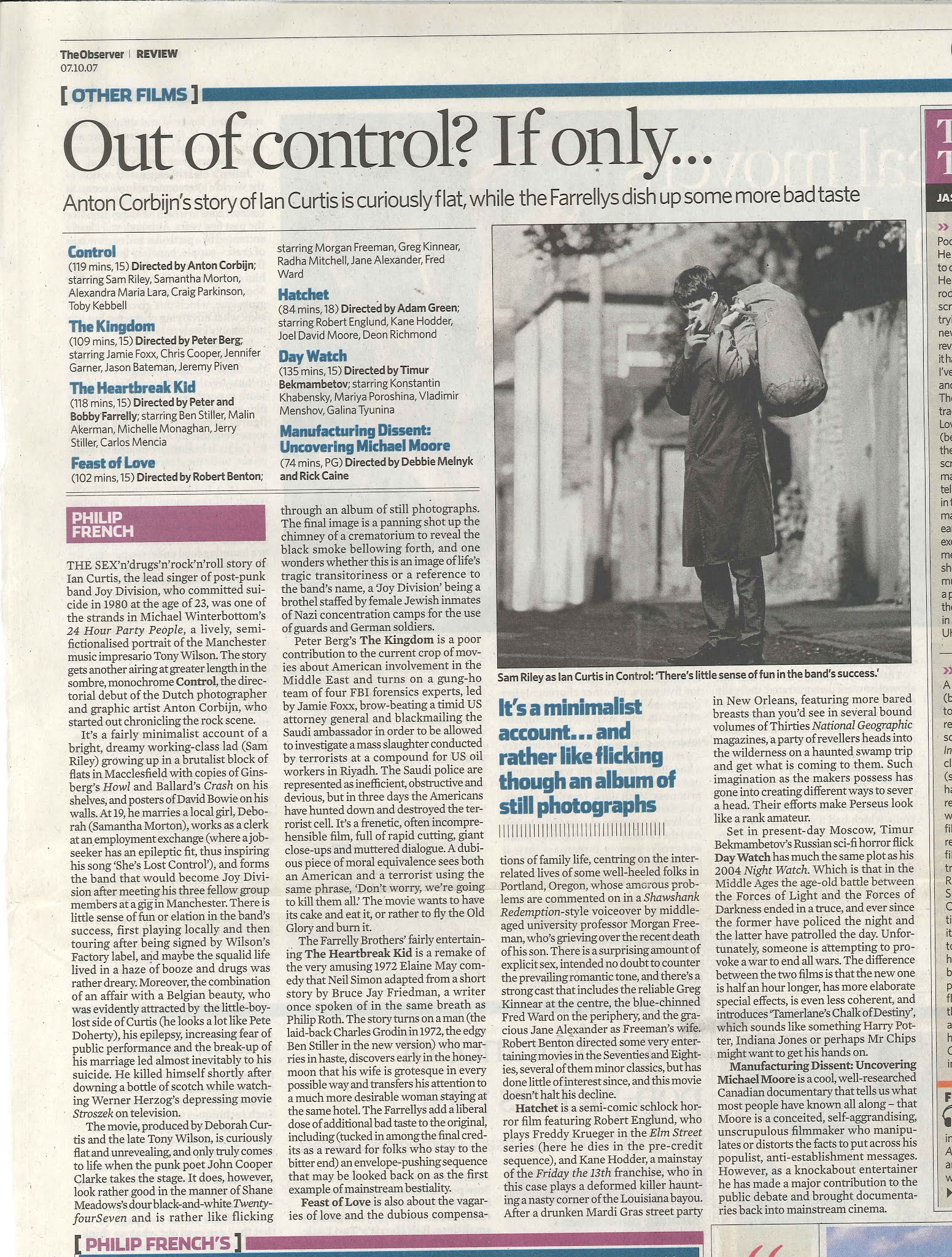2007 10 07 Control Review, The Observer
https://www.theguardian.com/film/2007/oct/07/features.review37
Out of control? If only...
Anton Corbijn's story of Ian Curtis is curiously flat
Philip French
The sex'n'drugs'n'rock'n'roll story of Ian Curtis, the lead singer of post-punk band Joy Division, who committed suicide in 1980 at the age of 23, was one of the strands in Michael Winterbottom's 24 Hour Party People, a lively, semi-fictionalised portrait of the Manchester music impresario Tony Wilson. The story gets another airing at greater length in the sombre, monochrome Control, the directorial debut of the Dutch photographer and graphic artist Anton Corbijn, who started out chronicling the rock scene.
It's a fairly minimalist account of a bright, dreamy working-class lad (Sam Riley) growing up in a brutalist block of flats in Macclesfield with copies of Ginsberg's Howl and Ballard's Crash on his shelves, and posters of David Bowie on his walls. At 19, he marries a local girl, Deborah (Samantha Morton), works as a clerk at an employment exchange (where a job-seeker has an epileptic fit, thus inspiring his song 'She's Lost Control'), and forms the band that would become Joy Division after meeting his three fellow group members at a gig in Manchester. There is little sense of fun or elation in the band's success, first playing locally and then touring after being signed by Wilson's Factory label, and maybe the squalid life lived in a haze of booze and drugs was rather dreary. Moreover, the combination of an affair with a Belgian beauty, who was evidently attracted by the little-boy-lost side of Curtis (he looks a lot like Pete Doherty), his epilepsy, increasing fear of public performance and the break-up of his marriage led almost inevitably to his suicide. He killed himself shortly after downing a bottle of scotch while watching Werner Herzog's depressing movie Stroszek on television.
The movie, produced by Deborah Curtis and the late Tony Wilson, is curiously flat and unrevealing, and only truly comes to life when the punk poet John Cooper Clarke takes the stage. It does, however, look rather good in the manner of Shane Meadows's dour black-and-white TwentyfourSeven and is rather like flicking through an album of still photographs. The final image is a panning shot up the chimney of a crematorium to reveal the black smoke bellowing forth, and one wonders whether this is an image of life's tragic transitoriness or a reference to the band's name, a 'Joy Division' being a brothel staffed by female Jewish inmates of Nazi concentration camps for the use of guards and German soldiers.

Comments
Post a Comment